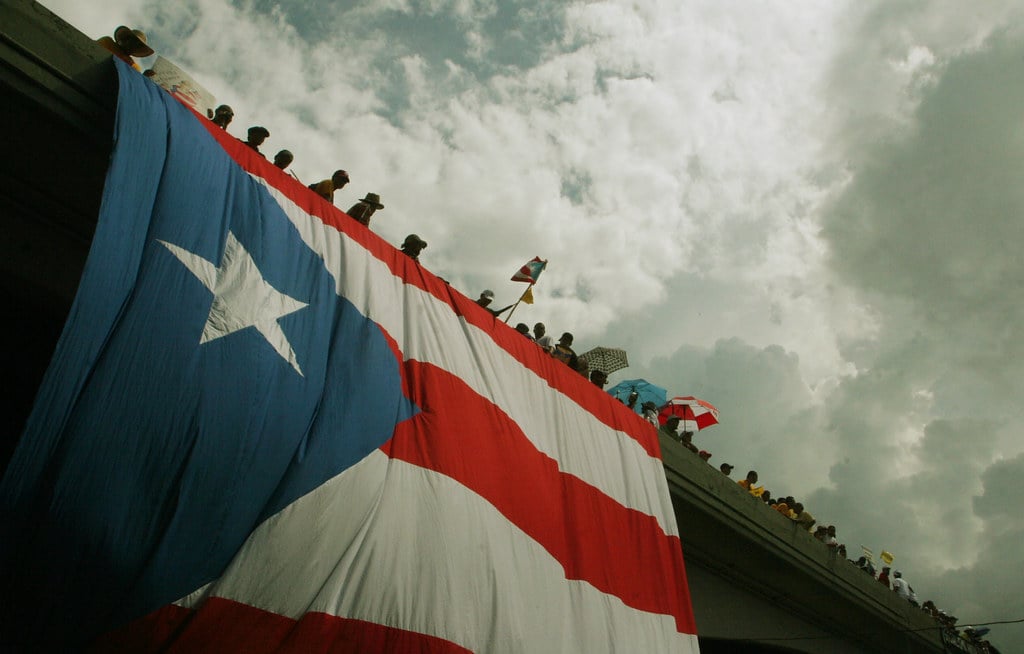Rincón, Puerto Rico, is a slow paced, warm and calm town filled with gorgeous beaches. Rincón means “nook” in Spanish. Located in the Western Coastal part of the island, it is a hot spot for surfing. A quick stroll around the town reveals several hotels, new condominiums and high priced rental units.
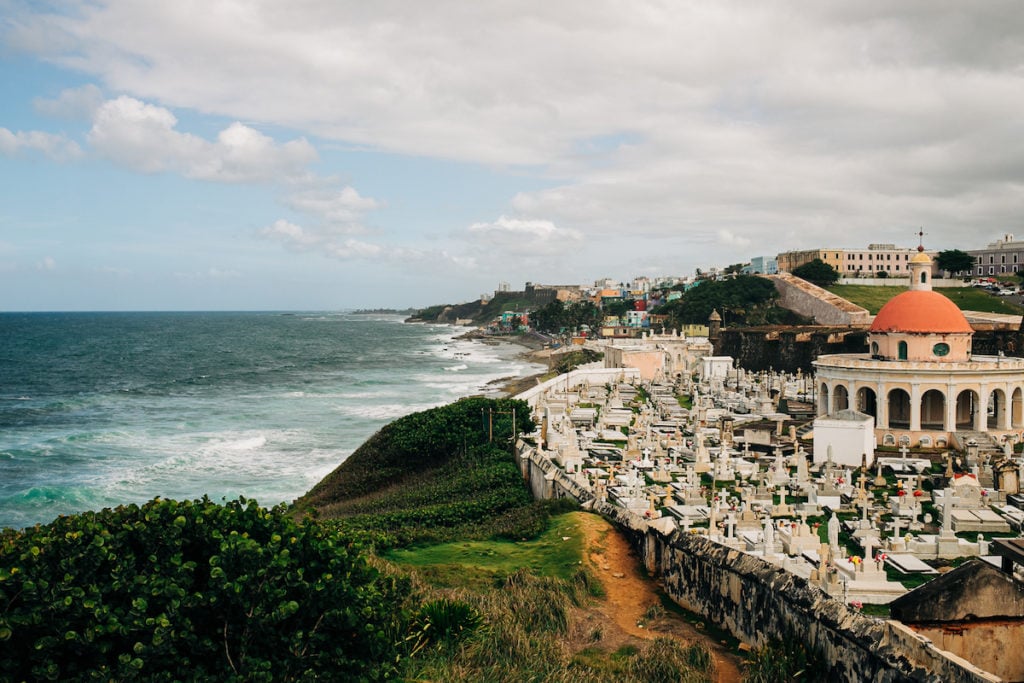
By law, all beaches in Puerto Rico must have public access. In recent years, however, hotels and apartment buildings have set private beachfront areas denying access to the public and forcing many to go through dangerous paths to access the beaches. These developments also have a dangerous environmental impact and increase the cost of living for locals.
Resistance in Rincón
Cassandra Lopez Fradera is an activist, surfer and resident of Rincón. Over the past few years, she has watched as Rincón’s local, quiet and laid back surf community has been transformed by real estate developers into resort territory, where wealthy tourists vacation and invest in real estate.
“There are Puerto Ricans who bought their houses for $5,000 on the beach next to people who can sell their house for millions of dollars,” Lopez told Liberation News. Rincón has a population of 14,056, 41% of whom live in poverty with a household income of $19,907.
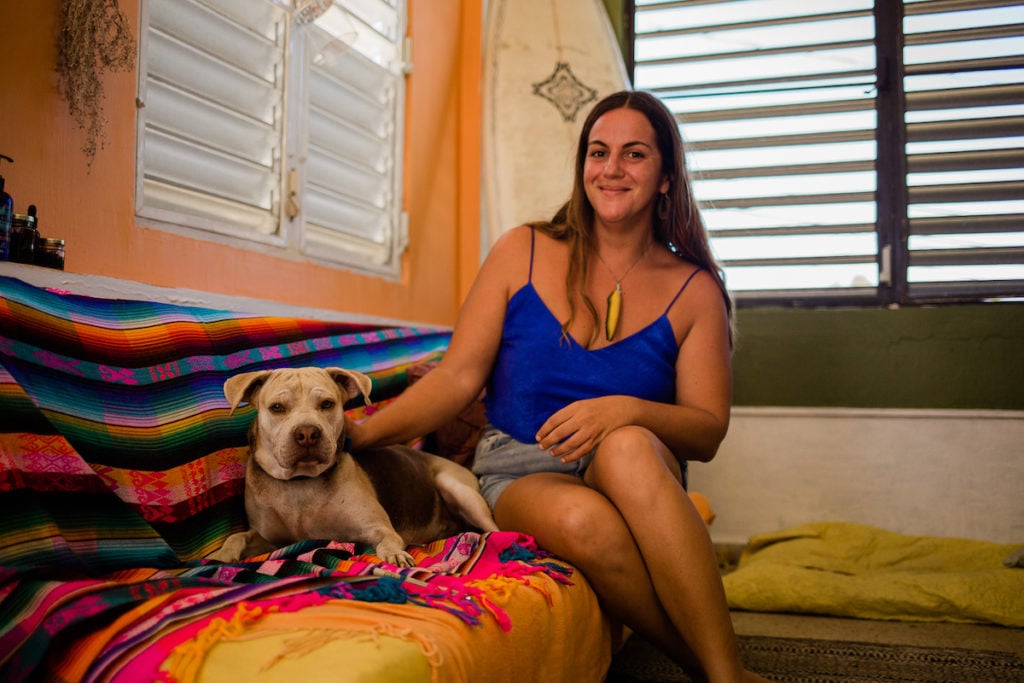
Beaches in Puerto Rico have been legally protected against privatization efforts since 1979, when new regulations began requiring developers to retain public access to all shores. According to the Puerto Rico Coastal Zone Management Program, development that blocks access to beaches in Puerto Rico is prohibited.
Rincón Bluewater LLC proposed to build a hotel and casino on Rincón’s famous Tres Palmas Marine Reserve, located by Steps Beach since 2004. The marine reserve has special protections under law in order to preserve the island’s rich marine biodiversity. Yet, the reserve is still being threatened by a new housing development called the Finca Sueño de Aurora construction project, which includes a plan to build a casino and hotel there.
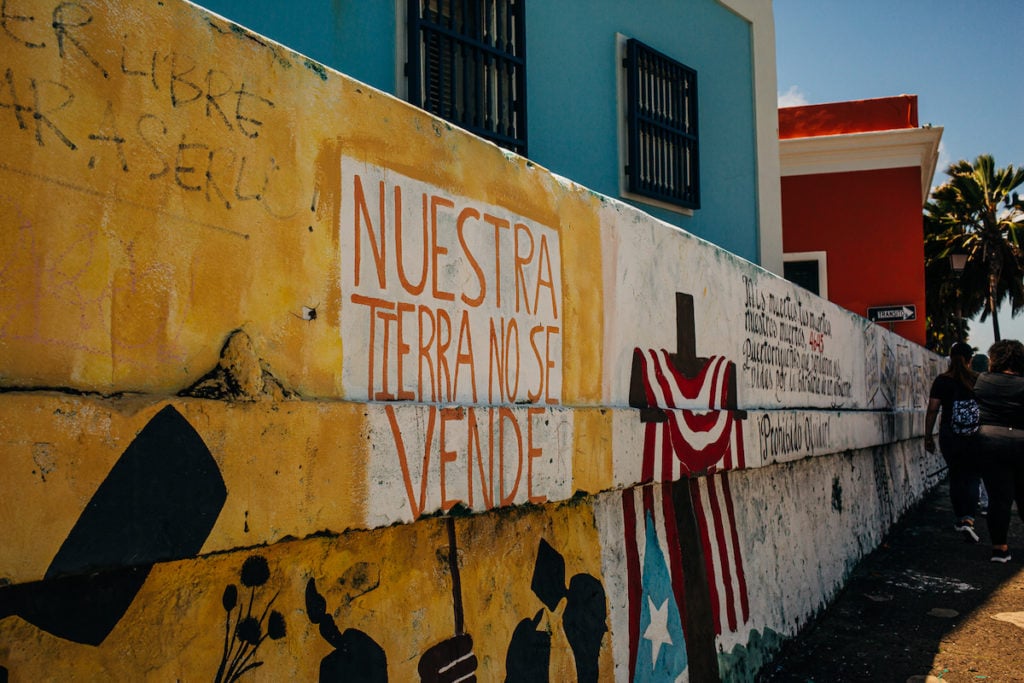
In August 2021, the Environmental Protection Agency demanded that Finca Sueño de Aurora comply with the Clean Water Act. The project involves bulldozing protected areas of the reserve, ultimately leading to storm water discharge flowing to the coastal wetlands and polluting the flow of the shore environment.
The developers have failed to acquire proper permits and are in violation of the Endangered Species Act and the Clean Water Act.
The architecture plan showed the 7,000 square foot casino would have 206 rooms with 2.82 acres of property in front of the beach. Government court papers show that Rincón Bluewater acquired a $15 million tax exemption and tax credit to build by the reserve without any consultation from the community. The local community responded by founding the “No Al Casino” movement. Through public demonstrations, they were able to effectively stop this development.
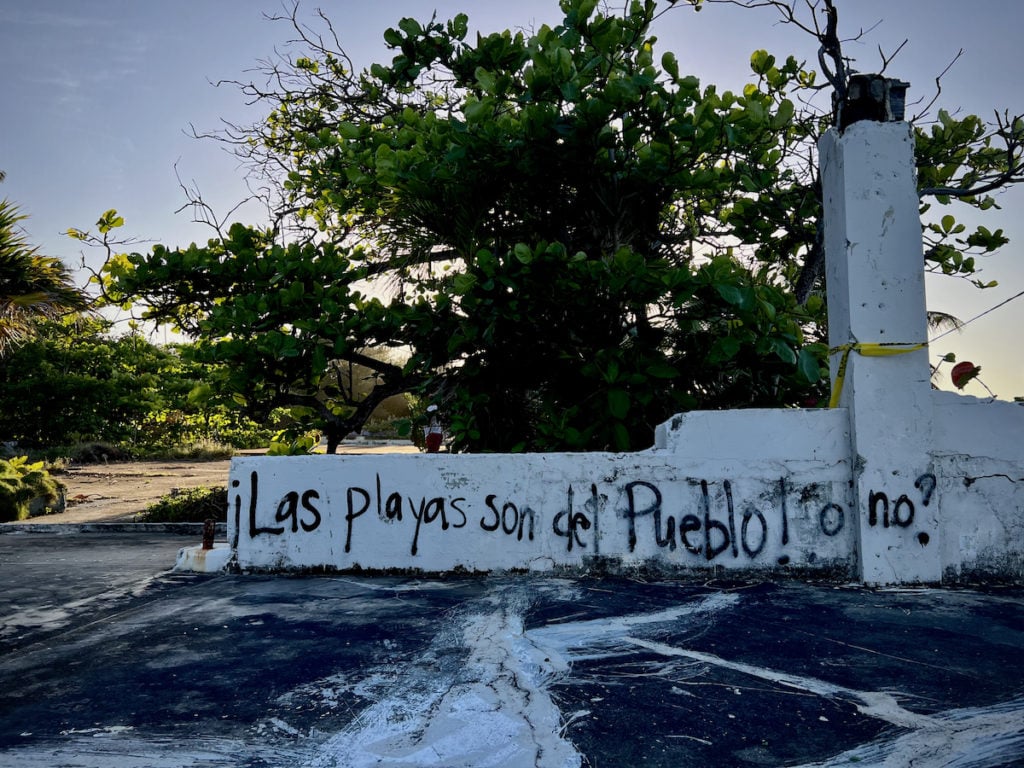
“A lot of the resistance work came out of the struggle against the casinos, hotels and the construction of large apartment complexes, all located on the shore,” said Lina Pérez, an activist and college student at University of Puerto Rico Mayaguez.
The wealthy take advantage of tax exemptions
In 2012, Act 22 was implemented as a way to attract foreign capital in exchange for tax exemptions. Act 22, also known as the “Act to Promote the Relocation of Investors to Puerto Rico,” was enacted by the 16th Legislative Assembly of Puerto Rico in order to promote immigration from wealthy individuals in the hopes of supporting the local economy.
Vanessa Uriarte is the executive director of the Organization Amgxs del M.A.R — Movimiento Ambiental Revolucionario — a group founded in 1995 with the purpose of protecting the environment and natural resources in Puerto Rico, and assisting people with the tools and resources to resist privatization efforts in their communities.
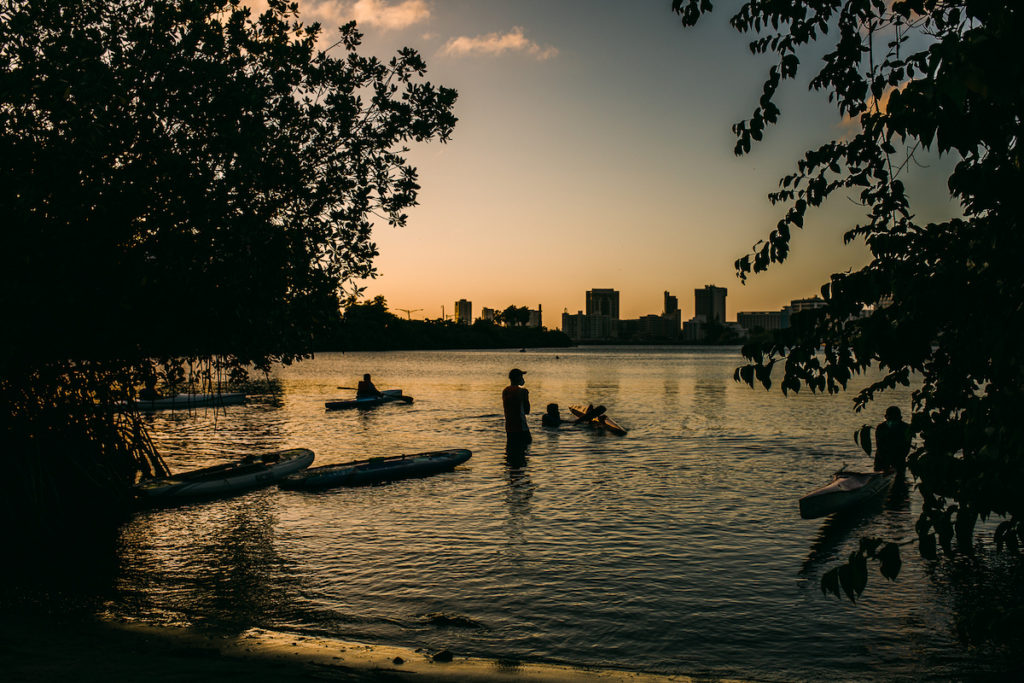
A total of 60% of Puerto Ricans live by the coast. “There are 78 municipalities in Puerto Rico. Out of those, 44 are municipalities located by a coast, and we are convinced that in all those 44 municipalities, these efforts of privatization are happening in all,” Uriarte told Liberation News. “So this is not something exclusively happening in one place. This resistance is happening all over.”
Uriarte outlined how wealthy influencers like Jake Paul “are moving to Puerto Rico, buying homes and wanting to live in front of the beach without paying taxes. We are in one of the worst economic recessions we have seen due to the fiscal condition and the debt we have.” This causes inflation in rents and the real estate market, meaning most working-class people have to work two or three jobs without benefits in order to survive in the same area.
‘Beaches Belong to the People‘
“Beaches Belong to the People” is the slogan representing this movement against privatization of public beaches in Puerto Rico. Current resistance efforts have been happening not only in Rincón, but also at Ocean Park in San Juan, Dorado Beach, in the South in Santa Isabel, Luquillo, Vieques and Culebras.
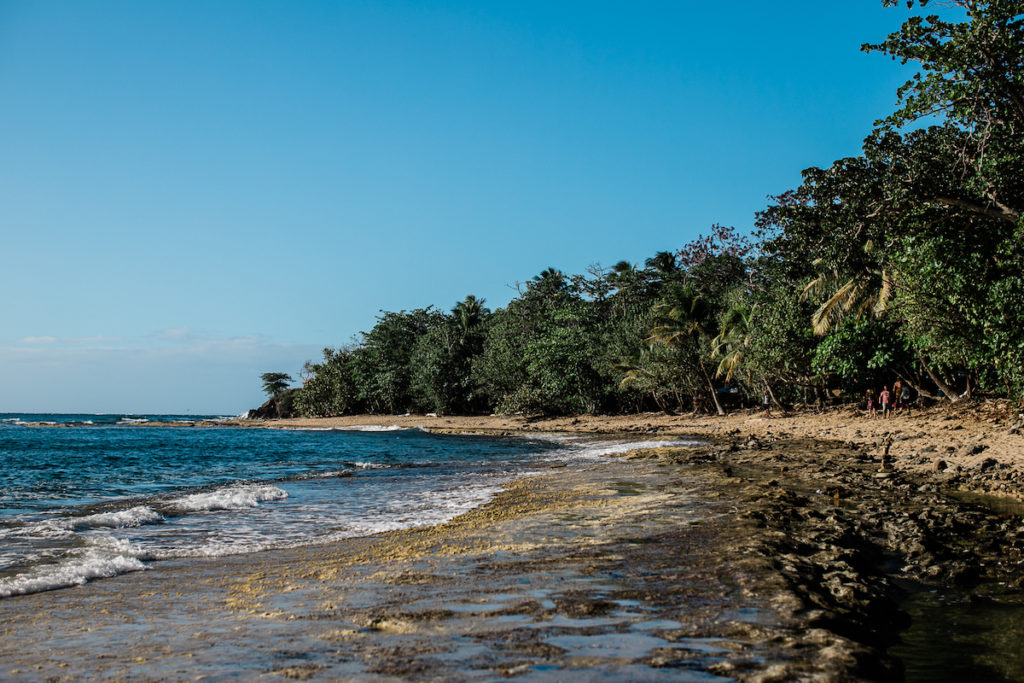
In January, local residents in Ocean Park Beach, Condado, San Juan held a protest to send a message to tourists and developers against privatization. The protest was a response to a viral video of an American tourist couple harassing local people for setting up a beach tennis court on the public beach of Ocean Park.
In February, local Puerto Ricans took over Dorado Beach located near San Juan to protest the inaccessibility the public has had to the beach. Over the years, the public has been denied access to the beach as recent developers have claimed certain areas as “private.”
Privatization echoes Puerto Rico’s colonial past
Uriarte related the fight against privatization to the independence movements from 1969 and 1970, and the island’s history of resistance against colonialism:
“In the 70s — with the notion of Caribbean beach tourism — [that was when] the boom of hotels in front of the beach began. This worldwide model of tourism has impacted the island because Puerto Rico is in the middle of the Caribbean, and since it is a U.S. colony, it has a value for these investors. So throughout all these 52 years the anti-privatization [movement] has taken on different characters … it has taken a very political stance to protect territory from the invading U.S. or the military bases that many of them have located on the coasts and on the beaches.”
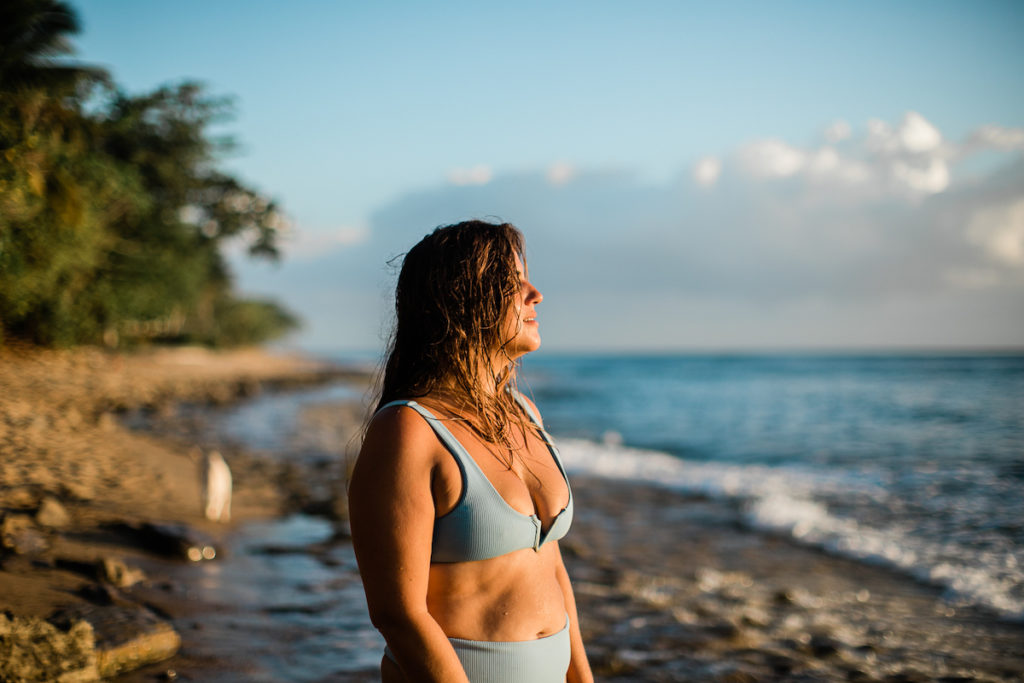
“I feel we’re in this hidden imperialist relationship because we were given citizenship, so at times that disconnects us from solidarity with other nations in Latin America,” said Lopez. “But the reality is that the Spanish took so much of the gold, copper, water from the center of the islands, the bamboo and the ocean. They took these huge resources.
“There is this notion among developers that say, ‘this is my property, my neighborhood, my house, my gate, my beach.’ The truth is that the ocean belongs to none of us.”
On June 2, Ciudadanos por un Luquillo Resiliente — Citizens for a Resilient Luquillo — will be holding a demonstration outside the San Juan Department of Economic Development and Trade.



